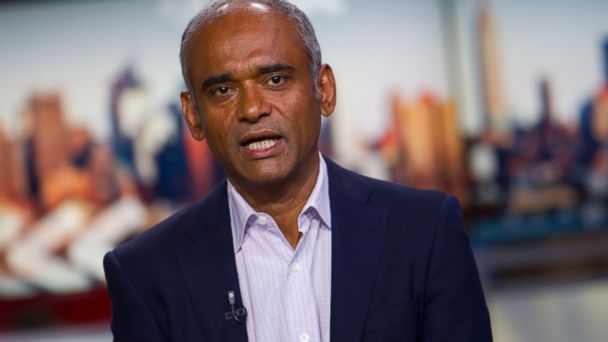TV's Future Might Ride on Supreme Court Aereo Ruling

Aereo CEO-founder Chet Kanojia. (Photo Credit: Jin Lee/Getty Images)
The big question facing the U.S. Supreme Court this week: is Aereo Inc. legal? Thirty years ago, big media companies failed to convince the court of the threat posed by home video recordings. Now they're back, and trying to rein in a different innovation. Aereo, a start-up company, came up with the clever idea of taking free TV signals from the airwaves and sending them over the Internet to paying subscribers in about a dozen cities. Consumers pay $8 to $12 a month to "rent" antennas online. Broadcast companies are suing because, unlike cable and satellite firms, Aereo doesn't pay them a dime. But several lower courts have sided with Aereo. ABC, a division of the Walt Disney Co., is among the plaintiffs.
Corporate earnings are certain to sway the stock market this week. Apple, Microsoft and Facebook are among about 130 big names to announce quarterly results. If sales and profits come in better than expected, the stock market may be pushed higher. If not, another slump is likely. Economic reports this week of note include home sales reports Tuesday and Wednesday, and durable goods orders Thursday. They may show the U.S. economy recovering from a chill in winter.
Biofuels made from the leftovers of harvested corn plants are worse than gasoline for global warming in the short term, a study shows, challenging the Obama administration's conclusions that they are a much cleaner oil alternative and will help combat climate change. A study paid for by the federal government and released in the peer-reviewed journal Nature Climate Change concludes that biofuels made with corn residue release 7 percent more greenhouse gases in the early years, compared to conventional gasoline. While biofuels are better in the long run, the study says they won't meet a standard set in a 2007 energy law to qualify as renewable fuel. The biofuel industry and administration officials immediately criticized the research as flawed.
Richard Davies Business Correspondent ABC News Radio abcnews.com Twitter: daviesnow